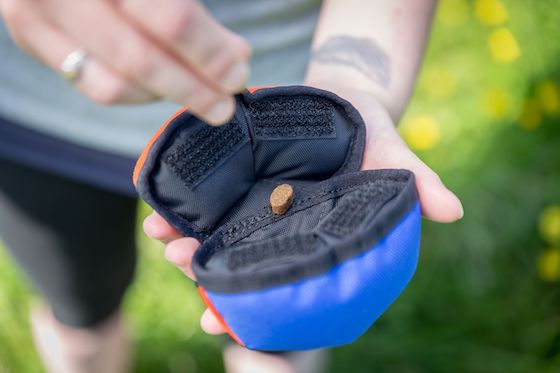7 easy ways to teach your rescue dog to play
Rescue dogs don’t often have the happiest of starts in life and, to many, ‘play’ is an alien concept - especially interactive play with a loving human.
At Tug-E-Nuff Dog Gear, we talk a lot about the power of play to boost bonds, transform recall and even tackle difficult behaviours (as well as being a LOT of fun!). So, it seems a shame that some rescues miss out on all these benefits because they find it tough to let their guard down and have a good play.

But there’s good news. All dogs, rescues included, can learn to play.
All you need is a few tactics up your sleeve and some awesome, enticing toys. Luckily we’re on hand to provide both 😘
Here are 7 easy ways to help your rescue dog learn to play…
1. Give it time
You can’t rush or push a rescue - or any dog, for that matter - into playing. It has to be something they are willing and happy to do - and getting to that point takes time, patience and consistency.
2. Be enthusiastic
If you’re not enthusiastic about play time, don’t expect your dog to be. Your dog will mirror your energy - and if you fake it, they can sniff it a mile off.
To tempt your dog into playing, you need to be genuinely excited about it yourself. Having some ideas of games to play can help, as well as training toys that are designed to be interactive, so they are fun for BOTH of you.

3. Introduce toys at home
Once your rescue dog is well settled in, your home becomes their safe space - which makes it the best place to introduce toys.
Start with a toy selection based on what seems to motivate your rescue (if it’s food, that’s ok - see below) and allow them to sniff and explore them in their own time, with supervision.
Try ditching the food bowl and letting them try a food toy like The Clam. As your rescue dog grows in confidence, try toys that are well suited for taking out and about, like the Pocket PowerBall Magnet.
4. Encourage your rescue to tug
Playing tug is hugely beneficial for you and your dog (more on the benefits of tug here), but lots of rescues might be new to it.
Once your rescue is comfortable around toys, try gently pulling on the end of one when it’s in their mouth and see how they respond.
Frisbees that double up as tug toys are excellent for this. Offer plenty of praise and a treat if they engage well. Always follow your dog's lead and never force anything.
5. Don’t worry if food is your dog's main motivator
If play is difficult for shy or nervous rescue dogs, the chances are that food is going to be their main motivator - and that’s OK. Lots of food motivated dogs can also enjoy playing - if they have the right toys.
At Tug-E-Nuff Dog Gear, we make a range of toys for foodie dogs, like our Bungee Food Bag, which you can stuff with treats to slowly teach your dog that playing tug is fun and rewarding. The bungee handle lets you encourage them to tug safely at a slight distance, which they may prefer.
There’s also our ever-popular Clam, which lets you hide treats inside that your dog can help themselves to. It's a treat ball perfect for rewarding from a distance for agility training, teaching fetch, or scent games at home.
6. Tap into your rescue dog's natural urges
Most dogs, including rescues, have an instinctive chase drive - although in some it’s more powerful than others. By tapping into this using motivational training toys made with real fur, you can harness the power of play and turn it to your advantage to encourage play.

Explore our range of tug toys made with real British Sheepskin, like our Sheepskin Chaser, and those made with responsibly-sourced rabbit skin, like the Rabbit Skin Chaser With Squeaker. There’s even a faux fur version, if you prefer.
7. Keep it light
Use a gentle, happy tone when you play and reward your rescue for being calm and positive. Never raise your voice or take toys away as any kind of punishment. Positive reinforcement all the way!
READ NEXT:
6 reasons to enrol on our free Power of Play training course
 Skip to content
Skip to content


